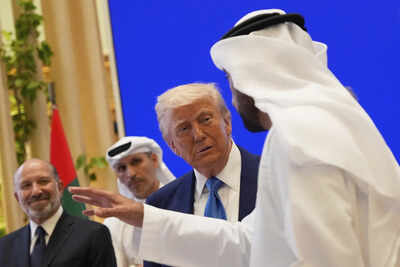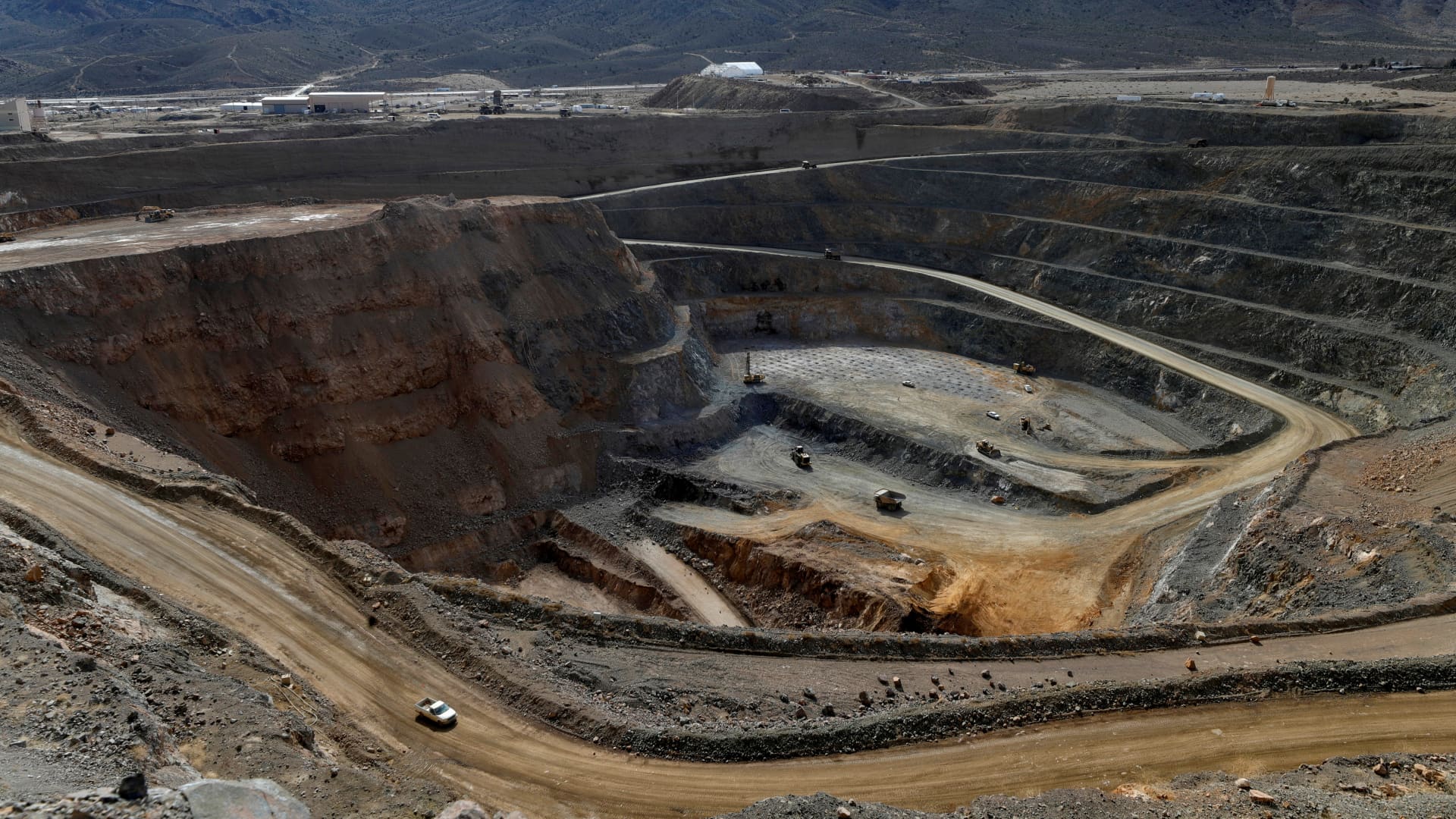
WASHINGTON: Since President Donald Trump announced his intent to end a half-century of US sanctions on Syria, a debate has developed in his administration over how quickly and thoroughly that should happen.
At risk could be the future of a transitional government run by those who drove Syrian leader Bashar Assad from power late last year and hopes that it can stabilize the country after a devastating 13-year civil war that has left millions dead or displaced, the economy in ruins and thousands of foreign fighters still on Syrian soil.US presidents have piled up penalties over the years on the autocratic family that previously controlled Syria, and those could be quickly lifted or waived through executive action.
But Congress imposed some of the strictest measures and would have to permanently remove them. Syrian President Ahmad al-Sharaa, the former militant commander who led the overthrow, says he is working to build an inclusive government friendly to the West. Some Trump administration officials are pushing to lift or waive sanctions as fast as possible without demanding tough conditions first. Others in the administration have proposed a phased approach, giving short-term waivers soon on some sanctions and then tying extensions or a wider executive order to Syria meeting conditions, which could substantially slow - or even permanently prevent - longer-term relief.
That would impede the interim government's ability to attract investment and rebuild Syria after the war, critics say. "The Syria sanctions are a complex web of statutes, executive actions and United Nations Security Council resolutions that have to be unwound thoughtfully and cautiously," White House National Security Council spokesman Max Bluestein said. The administration is "currently analysing the optimal way to do so" and would have an announcement soon, Bluestein said in a statement Thursday to The Associated Press. A State Department proposal circulated among officials after Trump's pledge on his Middle East trip last week lays out sweeping conditions for future phases of relief or permanent lifting of sanctions, including dismantling Palestinian militant groups as a top demand, according to a senior U.S. official familiar with the plan, who was not authorized to comment publicly and spoke on condition of anonymity. Additional proposals are circulating, including one shared this week that broadly emphasized taking all the action possible, as fast as possible, to help Syria rebuild, the official said. A welcome US announcement in Syria People danced in the streets of Damascus after Trump announced in Saudi Arabia last week that he would "be ordering the cessation of sanctions against Syria in order to give them a chance at greatness." "We're taking them all off," Trump said a day before meeting the country's new leader. "Good luck, Syria. Show us something special." This week, Secretary of State Marco Rubio advocated for a hedged approach in testimony before U.S.
lawmakers. Rubio pushed for sanctions relief to start quickly, saying Syria's five-month-old transition government could be weeks from "collapse and a full-scale civil war of epic proportions." But asked what sanctions relief should look like overall, Rubio gave a one-word explanation: "Incremental." Washington has levied sanctions against Syria's former ruling family since 1979 over its support for Hezbollah and other Iranian-allied militant groups, its alleged chemical weapons program and its brutality against civilians as the Assad family fought to stay in power. The sanctions include heavy penalties for outside companies or investors doing business there. Syria needs tens of billions of dollars in investment to restore its battered infrastructure and help the estimated 90% of the population living in poverty. Syria's interim leaders "didn't pass their background check with the FBI," Rubio acknowledged to lawmakers this week. The group that al-Sharaa led, Hayat Tahrir al-Sham, was originally affiliated with al-Qaida, although it later renounced ties and took a more moderate tone.
It is still listed by the US as a terrorist organization. But al-Sharaa's government could be the best chance for rebuilding the country and avoiding a power vacuum that could allow for a resurgence of the Islamic State and other extremist groups. "If we engage them, it may work out, it may not work out. If we do not engage them, it was guaranteed to not work out," Rubio said. Mouaz Moustafa, executive director of the US-based Syrian Emergency Task Force and an advocate who has been influential in helping shape past U.S.
policy on Syria, said he has been circulating a framework for a proposed executive order that would allow Trump to quickly remove many of the sanctions. Trump's move to lift the penalties is aimed at "preventing a failed state and ending perpetual violence," but some in the administration are trying to "water down" the decision, Moustafa asserted. Debate within the Trump administration The initial document sent out last week by the State Department's policy and planning staff proposed a three-phase road map for sanctions relief, starting with short-term waivers.
Progress toward additional relief and an outright lifting of penalties in future phases would be tied to tough conditions that generated pushback from some officials. Removing "Palestinian terror groups" from Syria is first on the list of requirements to get to the second phase. Supporters of sanctions relief say the condition might be impossible, given the subjectivity of determining which groups meet that definition and at what point they can be declared removed. Other conditions for moving to the second phase are for the new government to take custody of detention facilities housing Islamic State fighters in northeast Syria and to carry out a recent deal with the U.S.-backed, Kurdish-led Syrian Democratic Forces - which manages the detention facilities - that includes the SDF being incorporated into the Syrian army. To get to phase three, Syria would be required to join the Abraham Accords - normalized relations with Israel - and to prove that it had destroyed all of the previous government's chemical weapons. Israeli Prime Minister Benjamin Netanyahu previously pushed for the Trump administration not to lift sanctions on Syria. Israel has been suspicious of the new government, although Syrian officials have said publicly that they do not want a conflict with Israel. Since Assad fell, Israel has launched hundreds of airstrikes and seized a UN-patrolled buffer zone in Syria. Congressional sanctions on Syria will take much longer to lift While some of the sanctions can be lifted by executive action, others face a more complex process. The most difficult could be the Caesar Syria Civilian Protection Act, a wide-reaching set of sanctions passed by Congress in 2019 in response to alleged war crimes by Assad's government. It specifically blocks reconstruction activities, and although it can be waived for 180 days by executive order, investors are likely to be wary of reconstruction projects when sanctions could be reinstated after six months. In a meeting last week in Turkey with Syria's foreign minister, Rubio and Republican Sen. Lindsey Graham explained that they supported Trump's call to ease sanctions immediately but that permanent relief would require action by the Syrian government to meet conditions that the president laid out, according to other US officials, who spoke on condition of anonymity to discuss internal deliberations. "We have a moment here to provide some capability to this new government that should be conditions-based," Graham said this week. "And I don't want that moment to pass."

 1 month ago
97
1 month ago
97




























 English (US)
English (US)